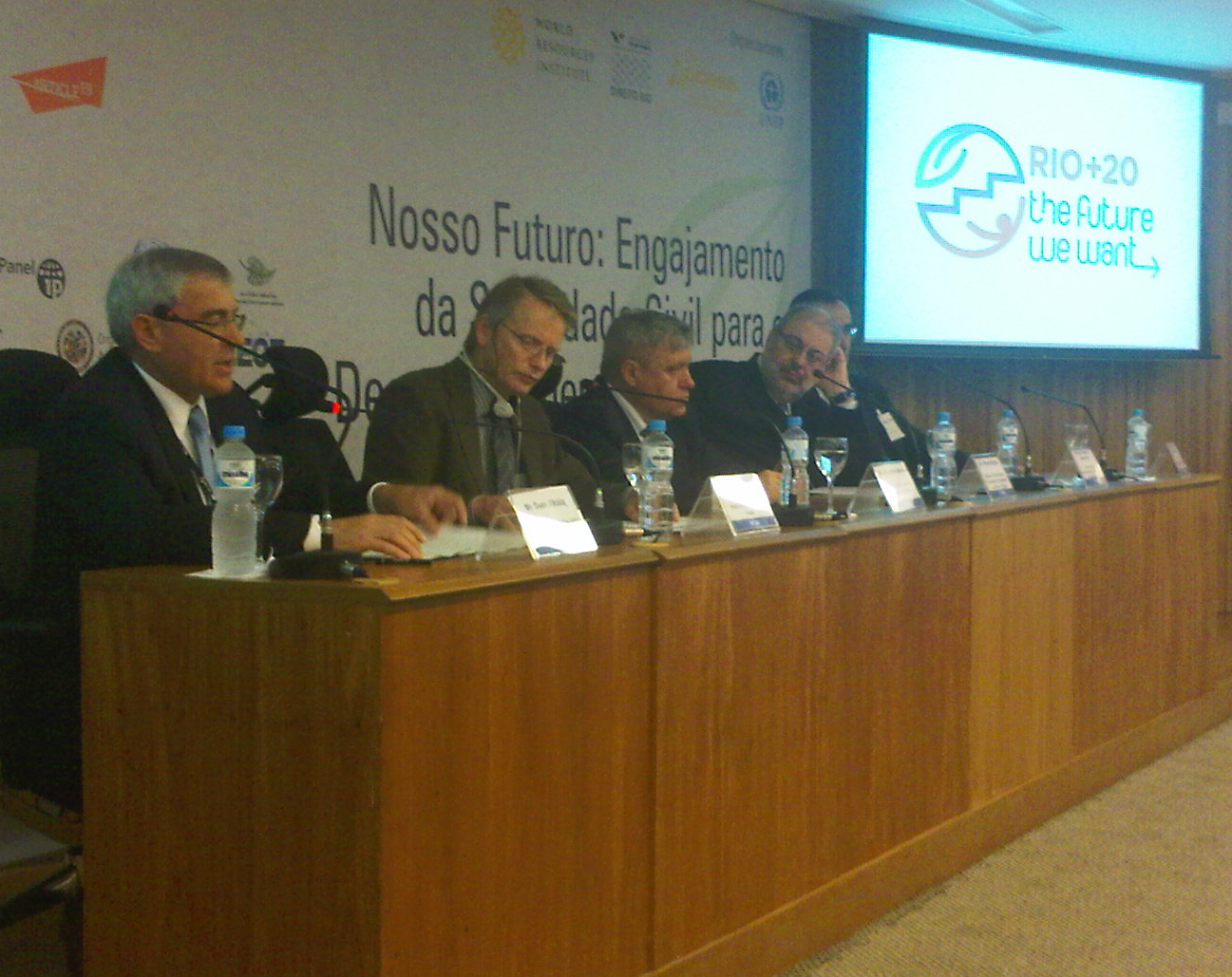 Sven Alkalaj, UNECE Executive Secretary, was one of the keynote speakers at the event Choosing Our Future: Open and Participatory Sustainable Development Governance, organized by the World Resources Institute in cooperation with UNECE and other partners on 19 June in Rio.
Sven Alkalaj, UNECE Executive Secretary, was one of the keynote speakers at the event Choosing Our Future: Open and Participatory Sustainable Development Governance, organized by the World Resources Institute in cooperation with UNECE and other partners on 19 June in Rio.This full-day event gathered representatives from Governments, civil society groups, and intergovernmental organizations and representatives of business, to assess progress and advance proposals to move Principle 10 of the 1992 Rio Declaration on Environment and Development into the next generation of reforms. Participants aimed at advancing ideas on how to build legal frameworks at the national, regional and international levels to implement Principle 10.
In his address, the Executive Secretary recalled that the world celebrates the 20th anniversary of the Rio Declaration. He said that the Pan-European region has made good progress in furthering the application of Principle 10 of the Declaration through a number of legal and policy instruments. These include the Protocol on Strategic Environmental Assessment to the Convention on Environmental Impact Assessment in a Transboundary Context, known as the Espoo Convention, the UNECE Strategy for Education for Sustainable Development, and the Convention on Access to Information, Public Participation in Decision-making and Access to Justice in Environmental Matters, known as the Aarhus Convention, and its Protocol on Pollutant Release and Transfer Registers or PRTRs.
He stressed that the latter are the world’s only international legally binding instruments enshrining Principle 10 of the 1992 Rio Declaration, and that “the treaties’ powerful twin protections for the environment and human rights can help us respond to many challenges facing our world, from climate change and the loss of biodiversity to air and water pollution. Ultimately, these instruments have provided the groundwork for building sustainable green economies and more stable, secure and inclusive societies.”
In his address, Mr. Jonas Ebbesson, Chair of the Aarhus Convention Compliance Committee, highlighted the important role of the Compliance Committee in helping Parties to improve in the implementation of the Convention’s principles.
In his statement, Mr. Gheorghe Salaru, Minister of Environment of the Republic of Moldova, said that for the Republic of Moldova as a country with its economy in transition, becoming a Party to the Aarhus Convention “was not a technocratic decision but strong political will to support democratic changes in the society, increase efficiency of the governance and to ensure that environmental concerns can be addressed by all stakeholders in timely and proper manner.”
Mr- Salaru highlighted that nowadays the success of the economic and social transformation associated with the move towards a Green Economy depends on participation of everyone in this process.
He stressed that “the implementation of Principle 10 and the Aarhus Convention have demonstrated to be a win-win situation for all stakeholders concerned. For public authorities, it has led to full legitimacy in the decisions taken and more effective support for the people. For civil society, it has been instrumental in taking due account of its interests and in achieving justice. For the private sector and investors, it has been a way of proving corporate social responsibility and preventing costly litigation in the future”.
Finally, he concluded saying that although there might be different ways to implement Principle 10 and develop international standards in this regard, “there are clear benefits of closer international cooperation on these issues”.

